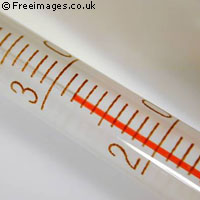Poll highlights Europeans' interest in health research
Europeans are more interested in medical and health research than in international news or economic affairs, a new Eurobarometer survey reveals. According to the European Commission, 71% of those polled said they were interested in medical and health research, and 60% expressed an interest in science and technology. In comparison, international news and economic affairs were of interest to 70% and 68% of Europeans respectively. Interestingly, while men are more interested than women in science and technology, women are more interested in medical and health research. Furthermore, young adults are more interested in science and technology, but older age groups are more interested in medical and health research. Both topics are of greater interest to people with higher levels of education, as well as to people who have either suffered from a chronic or life-threatening disease themselves, or who have experienced this through a family member. When quizzed about which aspects of health-related research were of most interest to them, 78% of respondents mentioned the results of the research. Asked what would interest them if a major disease was being studied, 60% mentioned new discoveries, while a third wanted to know more about how the disease spreads and its causes and treatments. 'In other words, what interests Europeans in medical and health research is above all the added value that they can obtain from such research, for example information which allows them to better protect themselves from infectious diseases,' the survey states. Television is the leading source of information on these issues, with newspapers, radio and magazines following close behind. However, the internet is growing in importance as a source of information, especially for young Europeans. One of the main aims of the survey was to find out how aware Europeans are of EU-funded research in the medical field. Around half of those surveyed said that they were aware that scientists could work with European colleagues on collaborative research projects, and of these, three-quarters knew that the EU could help to fund such projects. In general, people who had expressed a strong interest in science were more likely to have heard of the possibility of EU funding for collaborative research projects. 'This Eurobarometer shows the growing interest in research issues among Europeans, particularly in areas that affect them directly,' commented European Science and Research Commissioner Janez Potocnik. 'The desire for information about health and medical research is undoubtedly linked to the ageing of the population, but it is also encouraging to see the interest among the younger generation as well for science and technology. This study highlights our responsibility to communicate the results of the research we support to the public.'



